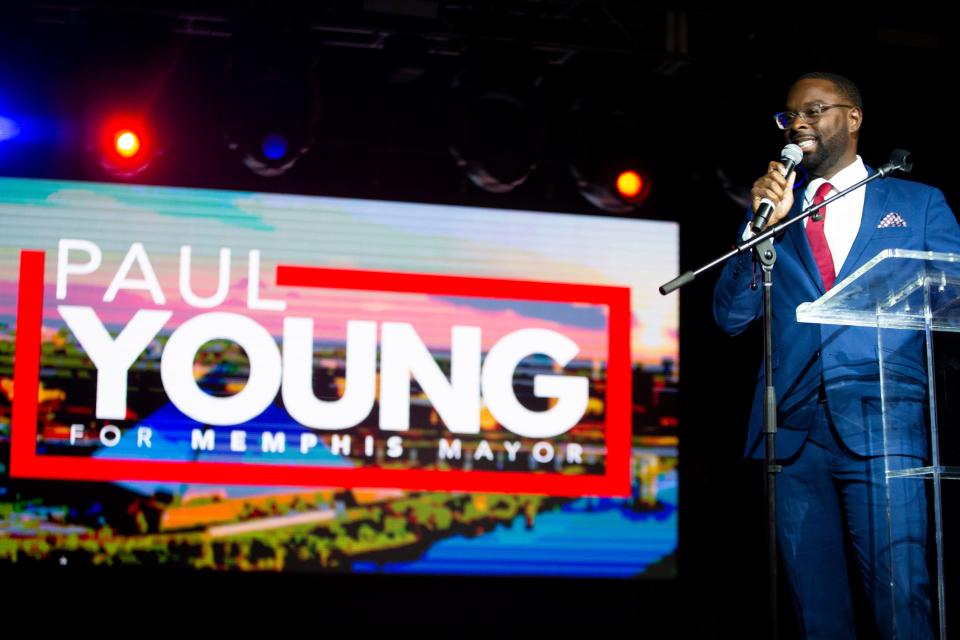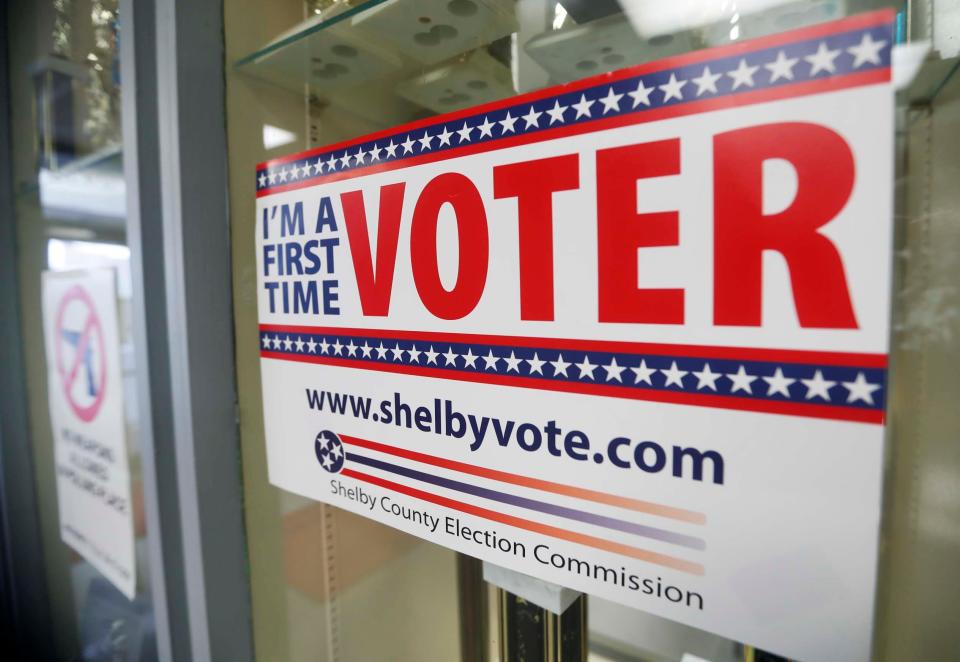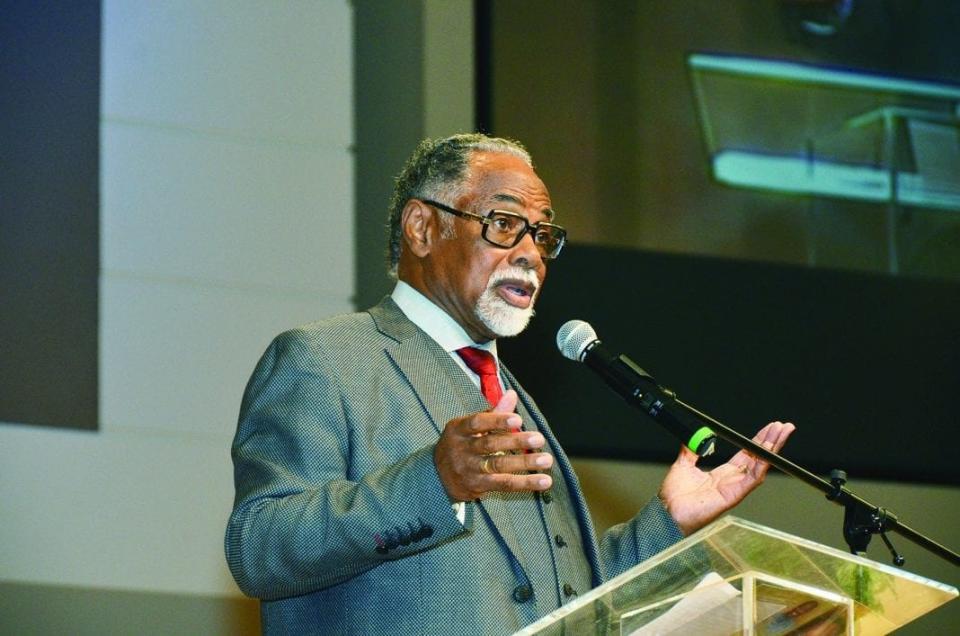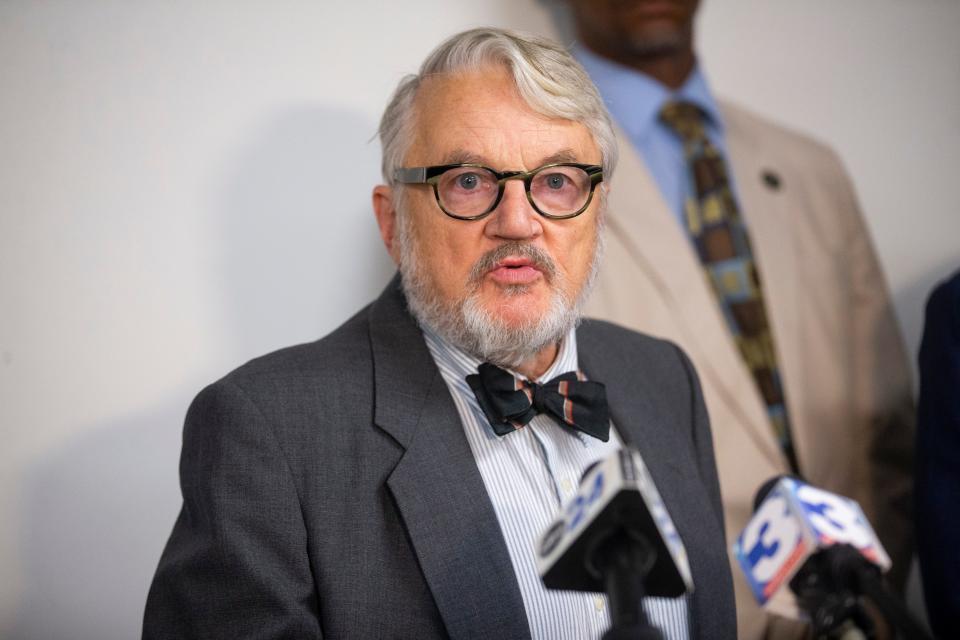Should Memphis election have runoffs or primaries? Why the past is part of decision-making
With 17 candidates having crowded the ballot for the recent Memphis mayoral race, top officials agree something needs to change to ensure that the next mayor receives a “mandate” from the public. But, just what that solution should be isn’t as easily decided, and whether primaries or runoffs become the mechanism for determining at-large city positions could be left in the hands of the public.
One of those mechanisms, runoffs, ended in 1991 when a U.S. district judge ruled that the runoff, for at-large seats, was created to “make sure whites retain power.”
Now, the topics of both runoffs and primaries remain polarized, with some worrying that bringing back runoffs could cause yet another lawsuit and others worrying that instating primaries in what currently are nonpartisan races will decrease collaboration between people of differing political parties.
Currently, two ordinances are making their way through the Memphis City Council that would put the question of primaries or runoffs before the voters.

The first, sponsored by Council Chairman Martavius Jones, would ask voters to decide, “Shall the Charter of the City of Memphis be amended to read: ‘Elections for the Offices of Mayor and Memphis City Council Members shall be partisan, such that political parties, including but not limited to the Democratic and Republican parties, may nominate candidates for the offices of Mayor and Memphis City Council Members by using the primary election provisions of the Tennessee Election Code or as otherwise authorized by the rules of the party.’”
The second, sponsored by four council members, would ask voters to decide, "Shall the Charter of the City of Memphis be amended to provide that the majority run-off provision in the City's Charter, Referendum Ordinance No. 1794, shall apply to any election for the office of Mayor."
Both have passed their first and second readings of the Memphis City Council and are slated to be heard for a third and final time on Tuesday. However, Jones said he is likely to pull his ordinance for consideration at a future meeting to give time for his council colleagues to consider how severely voter turnout drops off during runoffs.
'Changes the ballgame entirely'
Jones said he is proposing a primary system — which is currently in place in county, but not city, elections — since runoffs were previously prohibited in at-large city elections.
In the runoff system, which is currently in use for single district City Council seats, a race goes to a runoff if no candidate receives more than 50% of the vote. In the runoff, the top two candidates are on the ballot.

In 1991, U.S. District Judge Jerome Turner ruled that at-large elections for city positions be allowed to proceed, but without runoffs. His ruling came after two Black Memphians and the U.S. Department of Justice sued, arguing that runoffs were created for the purpose and had the effect of diluting the Black vote.
The Rev. LaSimba Gray was one of the two Black Memphians who filed suit in 1990, and he believes that if runoffs were reinstated, they would still be considered unconstitutional and cause a “long legal battle.”
While Black residents now constitute a greater percentage of voters in Shelby County, Gray said he believes that doesn’t mitigate the harm caused by runoffs.
“If the runoff was wrong against African Americans, it’s wrong against Caucasians,” Gray said.

In contrast, Memphis attorney Walter Bailey, also a former Shelby County Commissioner, believes runoffs should be brought back.
At the time of the lawsuit, African Americans were in the minority in the voting population, “whereas now the court doesn’t have to concern itself with the dilution of Black votes,” Bailey said. “That changes the ballgame entirely.”
“I was very concerned at the lineup regarding the mayoralty race,” Bailey said. “I thought it had the possibility of denying the population, the majority that is, of voters their choice, because of the failure of the plurality to have runoffs.”
City Councilman Jeff Warren, one of the four sponsors of the ordinance that would bring back runoffs, said if the ordinance is approved by the Council and the public, it could be taken before a judge to get a ruling on whether it is legal.

“I think that it would make people feel that they had more of a choice in who finally gets elected,” Warren said. “Right now, in our last race, people were really worried that someone would get elected that didn’t really have majority support. What this does is it allows citizens to be able to vote for someone for mayor with majority support.”
The idea of runoffs is preferable to Warren than partisan primaries, he said, “because if you look at what partisan politics is becoming in our country, it’s almost becoming something that’s stopping our government from functioning.”
But Jones, the lone sponsor on the ordinance seeking to instate partisan primaries, said runoffs don’t actually result in the will of the majority being enacted. Rather, runoffs typically see a drop off compared to the general election, with historical drop-offs in single district council runoffs ranging, on average, at 77%, Jones calculated. In 2018, the runoff for District 4 dropped off by 85% compared to the general election, Jones said.
Political news: Memphis Mayor-elect Paul Young makes first two administration appointments. Here's who
“I would hope that my colleagues see that and realize (runoffs) are not the best way for us to address that issue,” Jones said.
If both ordinances are approved by the Council, voters would be able to choose between the two proposals at an upcoming election. However, both Jones and Warren said they are hopeful that only one will be approved by the Council and come before the public.
Katherine Burgess covers Memphis City Government and religion. She can be reached at katherine.burgess@commercialappeal.com or followed on X, formerly known as Twitter, @kathsburgess.
This article originally appeared on Memphis Commercial Appeal: Should Memphis elections have runoffs or primaries?

